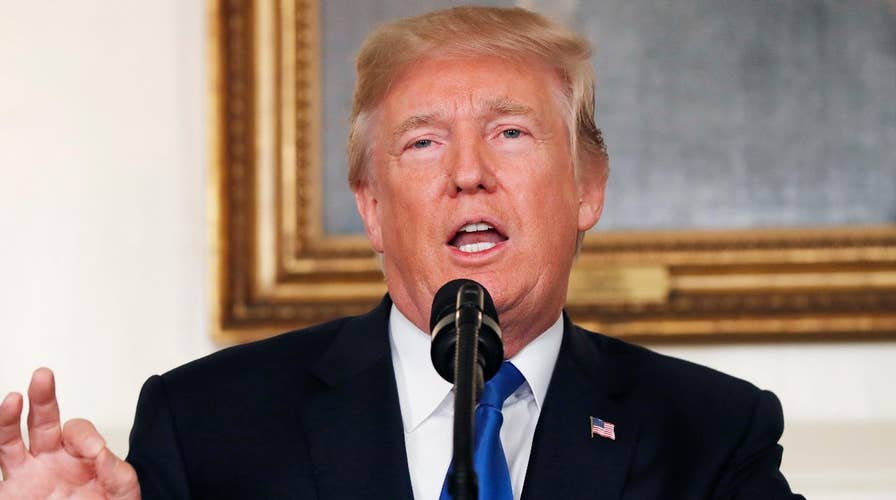President Trump unveils Iran strategy
President Trump allows the Obama administration’s Iran deal to stand, but he chooses not to certify it. Doing so, he kicks the decision making to congress. What are their options?
It could have been worse. You could almost hear the collective sigh of relief from America's allied capitals when President Donald Trump announced that he was kicking the Iran nuclear deal over to Congress to fix.
True to his campaign pledge, President Trump refused to certify to Congress that Iran has been complying with what he called the "worst" arms control deal the U.S. ever negotiated.
He also asked Congress to impose sanctions on Iran for its continued ballistic missile tests, its aggressive conduct in the region, its support for Syrian president Bashar al Assad, its support for terror and other efforts to destabilize the Middle East, and its human rights abuses.
He also added additional sanctions on members of the Iran Revolutionary Guard Corps, the Ayatollah's shock troops.
Trump has bought the nuclear deal, and the pragmatists in Iran who negotiated it, some time.
Finally, he threatened to tear up the Iran nuclear deal if Congress and America's allies don't correct what he considers its unacceptable weaknesses. That's called leverage.
But he didn't shred the deal. He didn't unilaterally withdraw. "What's done is done," Mr. Trump said, after denouncing the deal's many failings.
Many of the nuclear agreement's most ardent supporters -- including America's European allies and even the most rational members of his own cabinet -- feared he might not listen to reason.
They worried that while struggling to contain North Korea, a rogue state that actually has nuclear weapons and has vowed to develop long-range missiles capable of striking San Francisco, Trump would open a second nuclear front by abandoning the nuclear pact his despised predecessor, Barack Obama, so painstakingly negotiated.
But despite his dire threats and bellicose rhetoric, the president listened to the adults in the room, among them, Defense Secretary Mattis, who recently told Congress that the deal was in the nation's security interests.
He accepted political reality -- that there would be no chance of a united front against Iran, as Michael Singh, a senior fellow at the Washington Institute for Near East Policy, argued, unless Mr. Trump decided to try to strengthen the deal while remaining in it. "This puts policy towards Iran on a much more solid footing," he said in an interview.
After weeks of discussions, Trump came to understand that the case for unilateral withdrawal was weak. While Trump officials have argued that Iran is violating the agreement, eight reports from the International Atomic Energy Agency, which monitors nuclear programs and this pact, confirmed that Iran was adhering to its terms.
The leaders of France, England and Germany all warned of the consequences of a unilateral withdrawal by asserting their determination to abide by it.
Even many of the ostensible weaknesses the president cited in his speech Friday were misleading. For instance, though he said that the deal limits Iran's nuclear programs for too short a time, Anthony Blinken, a former senior Obama official noted that under another treaty that Iran has signed and ratified, the Nuclear Non-proliferation Treaty, Iran is permanently barred from developing an atomic bomb. And its acceptance of intrusive inspections lasts far longer than the nuclear deal.
With his pugnacious speech Friday, Trump has bought the nuclear deal, and the pragmatists in Iran who negotiated it, some time. That's not great news, but considering the alternative, we should all breathe a bit more easily.

